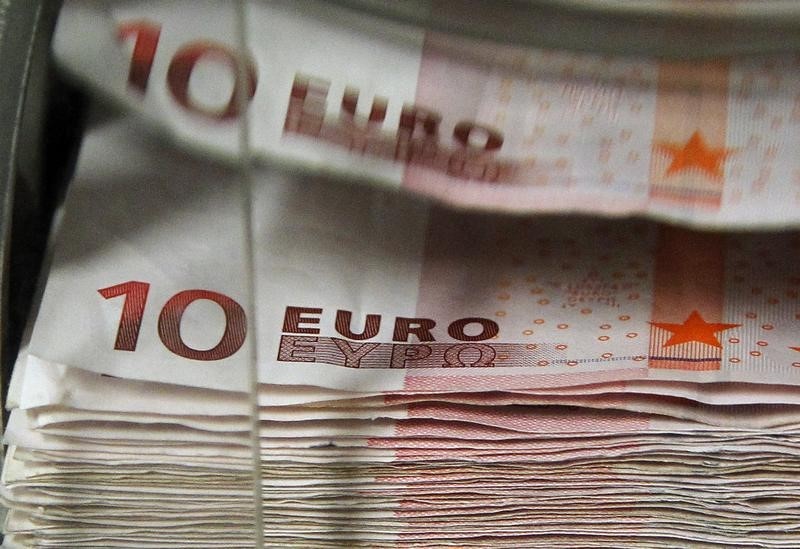* Euro boosted by signs ECB still far from more easing
* Aussie suffers after China PMI hits 6-1/2-year low
* Yen flat after strong Asian session
* Dollar index marginally lower on euro move (Recasts after euro moves higher)
By Patrick Graham
LONDON, Sept 23 (Reuters) - The euro gained around a third of a percent against the dollar and the yen on Wednesday, helped by signals that an expansion of the European Central Bank's quantitative easing programme is not quite on the agenda yet.
Ahead of a European Parliament appearance by central bank chief Mario Draghi, ECB Governing Council member Bostjan Jazbec said it was too early for the bank to discuss changing policy and in particular prolonging the programme of asset-buying.
That went against those in the market who have speculated this week that Draghi could indicate the bank was getting closer to deciding to extend the programme past next September.
"There is some push back on the idea that the ECB will do more, so it's helping the euro," said a spot trader with one bank in London.
"Euro has been sold in the last few days on expectations that Draghi would be dovish today. So there is room for a squeeze higher in euro."
By 1134 GMT, the euro was up 0.35 percent at $1.1161 and 134.19 yen respectively. EUR=EBS EURJPY=EBS
The Australian and New Zealand dollars had sunk in Asian trading earlier after a business survey dealt another blow to investors' already fragile confidence in China, the chief driver of global sentiment in the past month.
The Aussie, developed currency markets' main proxy for China plays, fell as much as percent before recovering to stand half a percent lower at $0.7058 AUD=D3 , well off a near four-week high of $0.7280 set on Friday. The kiwi NZD= recovered ground in European trading to be marginally up on the day.
Elsewhere, the market's response to the Chinese data and more sales of stocks in Europe and Asia was a mixed bag.
A number of major banks have returned to their mantra of calling for a weaker euro in the past week, arguing that an extension of the ECB's easing programme will coincide with a rise in official U.S. interest rates.
Against that has been a tendency among investors to buy the euro when stock markets are falling, and the continuing doubts over the timing of a first move by the U.S. Federal Reserve, which for some has retreated into next year. That leaves the picture on the dollar mixed, too.
"I think FX is positioned for additional signals from the ECB, that trade has been put on this week," said Stephen Gallo, head of European FX Strategy with BMO in London, speaking before Jazbec's comments on Wednesday.
"Risk appetite is fragile though, and the euro remains negatively correlated with risk appetite - that probably explains some of the euro's resilience this morning."
